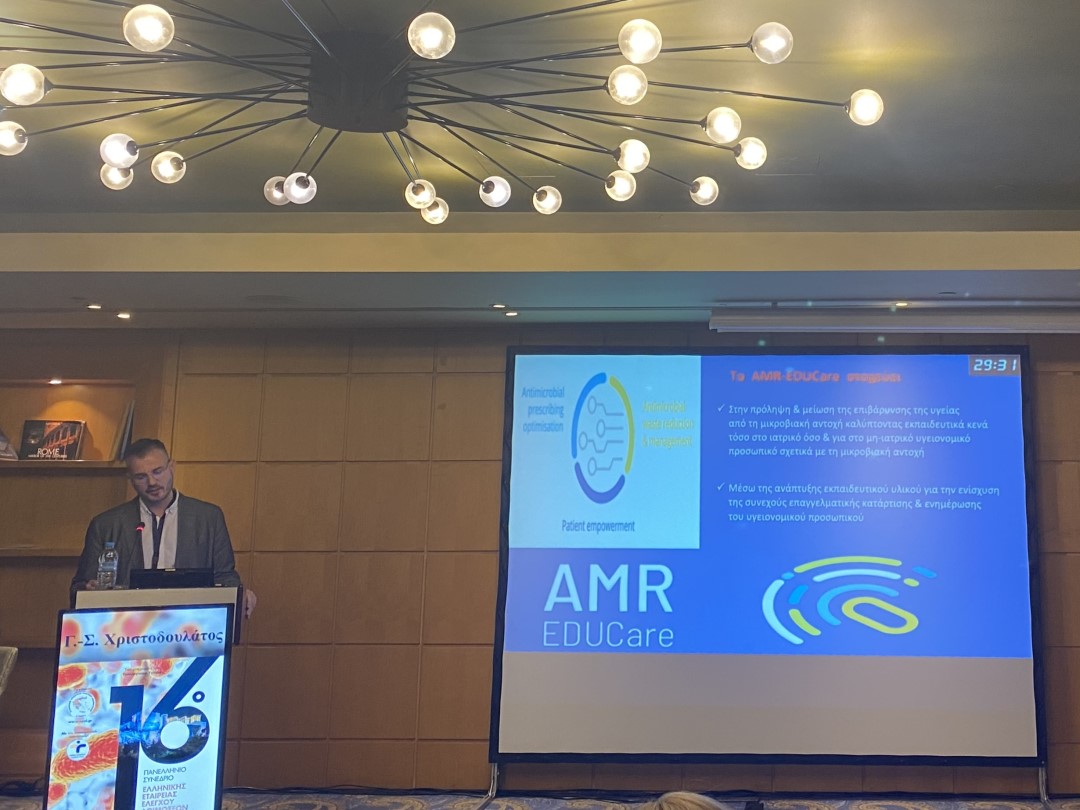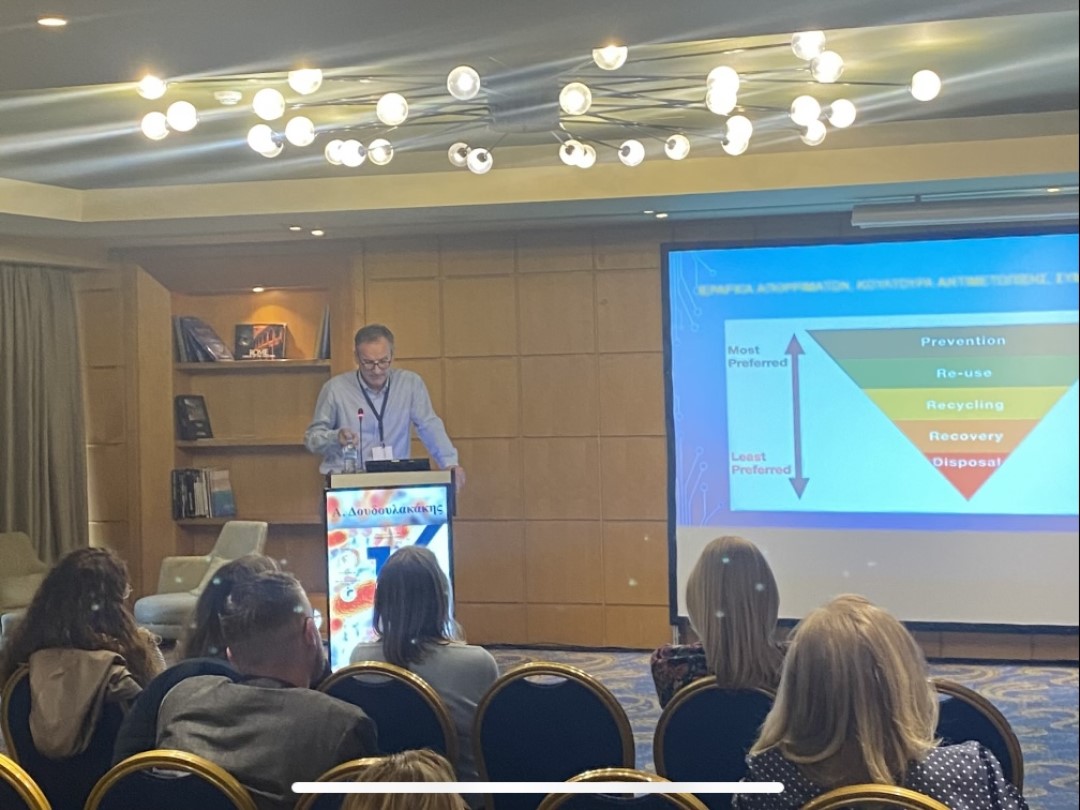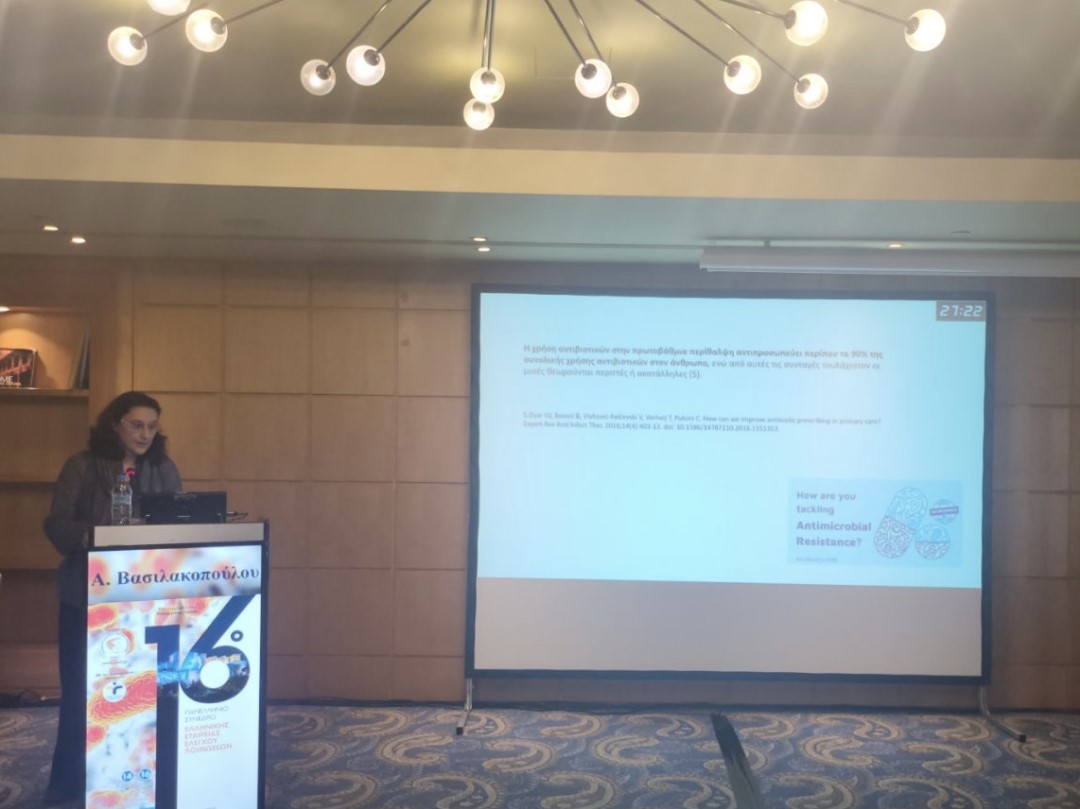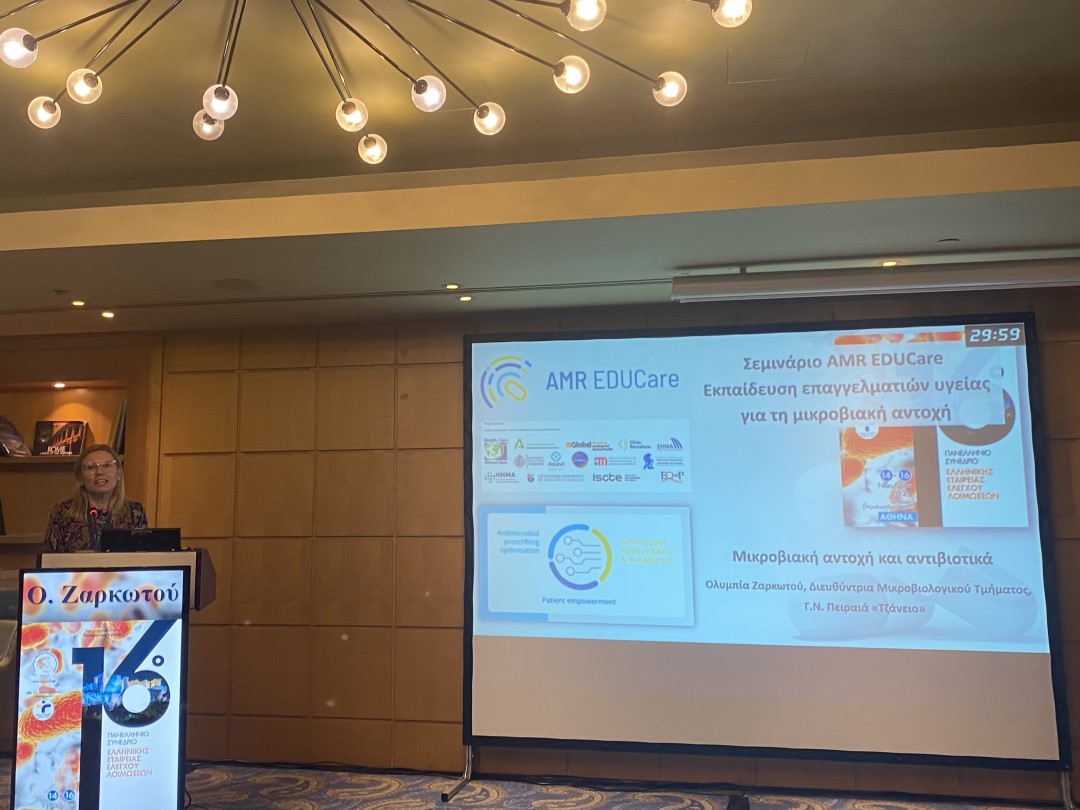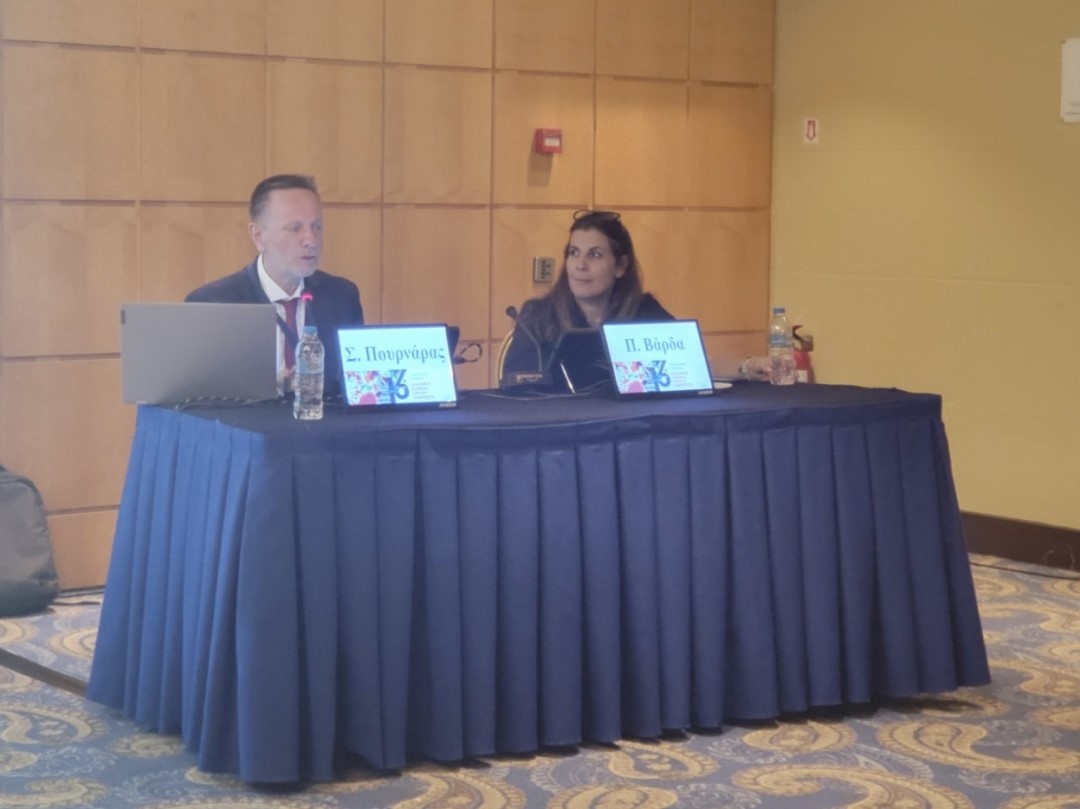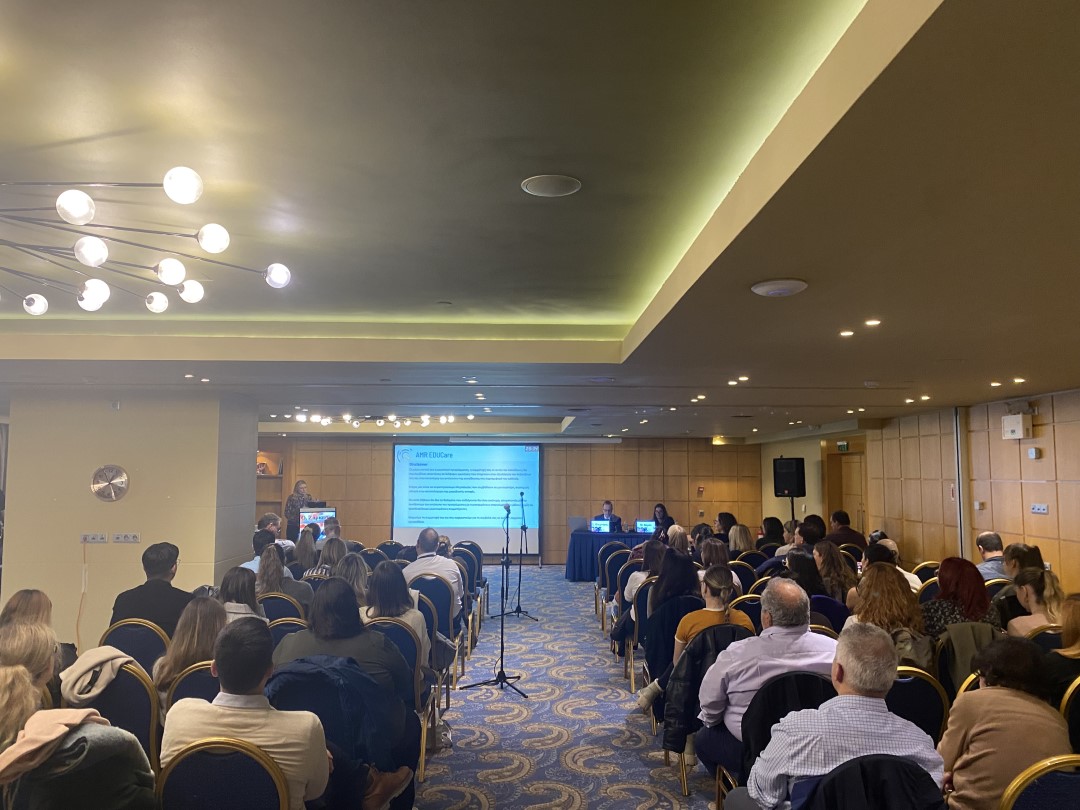Welcome to the fourth AMR EDUCare newsletter
December, 2024
Dear Reader,
We are happy to present the fourth newsletter of the AMR EDUCare project (2023-2025), committed to the fight against antimicrobial resistance (AMR) by developing educational materials in this field for healthcare professionals.
In this newsletter, you can read about the Train the Trainers workshop in Seville, the successful completion of our first in-person training in Athens, and a glimpse into one of the modules of the Waste Management course: digital solutions for managing antimicrobial waste.
Train the Trainers event in Seville
The AMR EDUCare project successfully held the “Train the Trainers” event with the support of the Andalusian Health Service (SAS). The event was structured to ensure that trainers would not only understand the educational content but also be well-prepared to deliver it effectively.
During their presentations, WP leaders provided an overview of their modules and explained the development process. They also shared strategies for engaging and impactfully presenting this content to trainers and students.
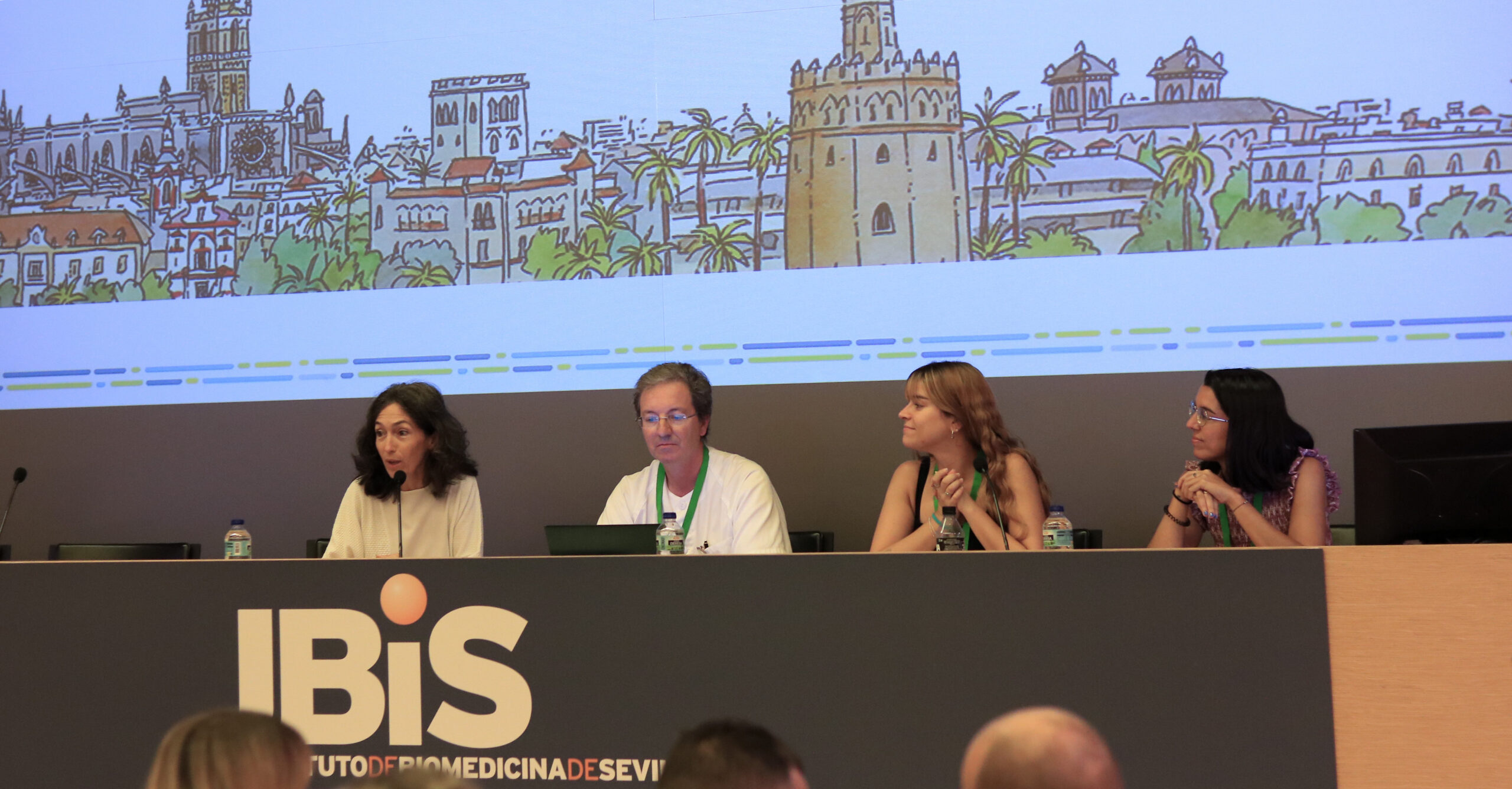
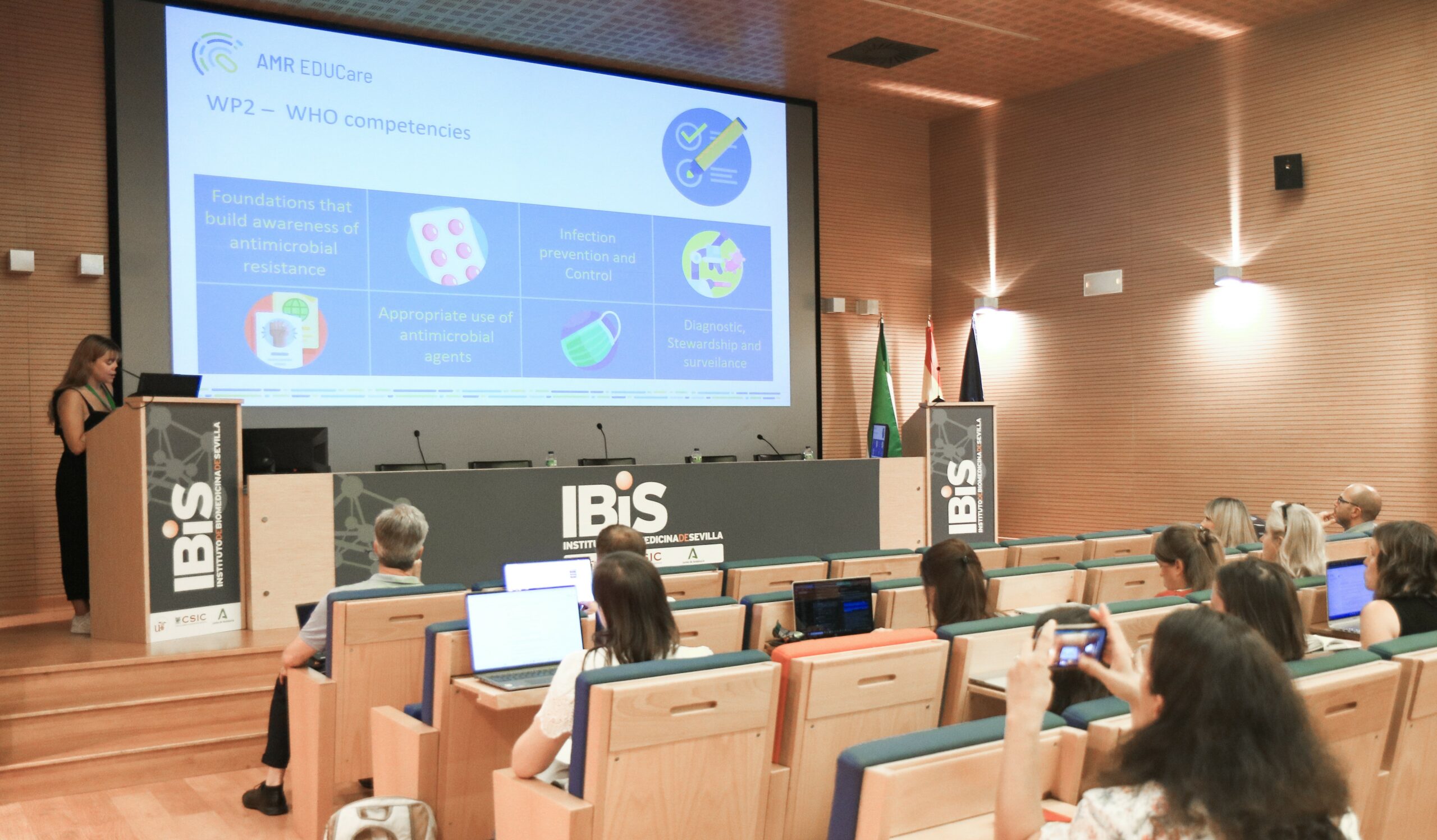
Participants were guided on how to navigate the course materials and the online platform efficiently and what the essential information from each module is, emphasizing key messages and practical takeaways. The use of innovative materials, including interactive games, was demonstrated to show how trainers can enhance learning experiences. Trainers were also instructed on how to adapt their teaching methods for diverse audiences.
The training materials are currently being translated into six languages: Spanish, Portuguese, Greek, Italian, Lithuanian, and Hungarian. Soon, they will be available on an online educational platform, providing a flexible learning option for trainers and students alike. In addition to the digital format, in-person training sessions are being organized in various countries; the first was already held successfully in Greece.
The first in-person training seminar in Greece
The first AMR EDUCARE seminar was held on November 15th, 2024, at the Wyndham Grand Athens Hotel. Despite heavy rain and challenging traffic in central Athens, the event welcomed 60 participants: doctors, nurses, and healthcare administrative staff.
Prof. Spyros Pournaras and Mrs Varda coordinated the seminar, which included training sessions led by Dr Zarkotou (WP2.1), Dr Vasilakopoulou (WP2.7), Dr Doudoulakakis (WP3.1), and Dr Christodoulatos (WP4.2).
The medical audience included internists and clinical microbiologists/biopathologists — key members of antibiotic stewardship teams in their healthcare facilities.
Participant feedback was positive, with an average satisfaction rating of 9.5/10. This excellent rate highlights the value of our educational efforts and reinforces our commitment to equipping healthcare professionals with the knowledge they need to combat AMR effectively.
Thank you to everyone who braved the weather to join us and made this event successful.
Insight into the Waste Management course – digital solutions for management of antimicrobial waste
Improper disposal and management of medical waste, particularly materials contaminated with antibiotics or resistant bacteria, contribute significantly to the spread of AMR. Healthcare facilities can substantially enhance their waste management practices by incorporating digital technologies such as Artificial intelligence (AI), robotics, the Internet of Things (IoT), and blockchain into medical waste management to improve efficiency, traceability, and recyclability.
IoT-enabled sensors can measure waste levels, identify hazardous materials, and monitor environmental conditions in storage areas. Paired with blockchain, these systems provide secure, immutable records of waste generation and disposal activities, ensuring transparency and compliance with regulatory standards.
AI-powered systems with image recognition can accurately classify waste materials, separating hazardous, recyclable, and general waste. This precision minimizes human error, reduces contamination, and ensures the safe disposal of antibiotics and antimicrobial chemicals. The success of these models, however, hinges on access to reliable data and integration into operational workflows. Predictive models based on AI algorithms can anticipate waste generation patterns. These models allow facilities to optimize collection schedules and reduce operational costs. However, these systems depend on adequate infrastructure and investment.
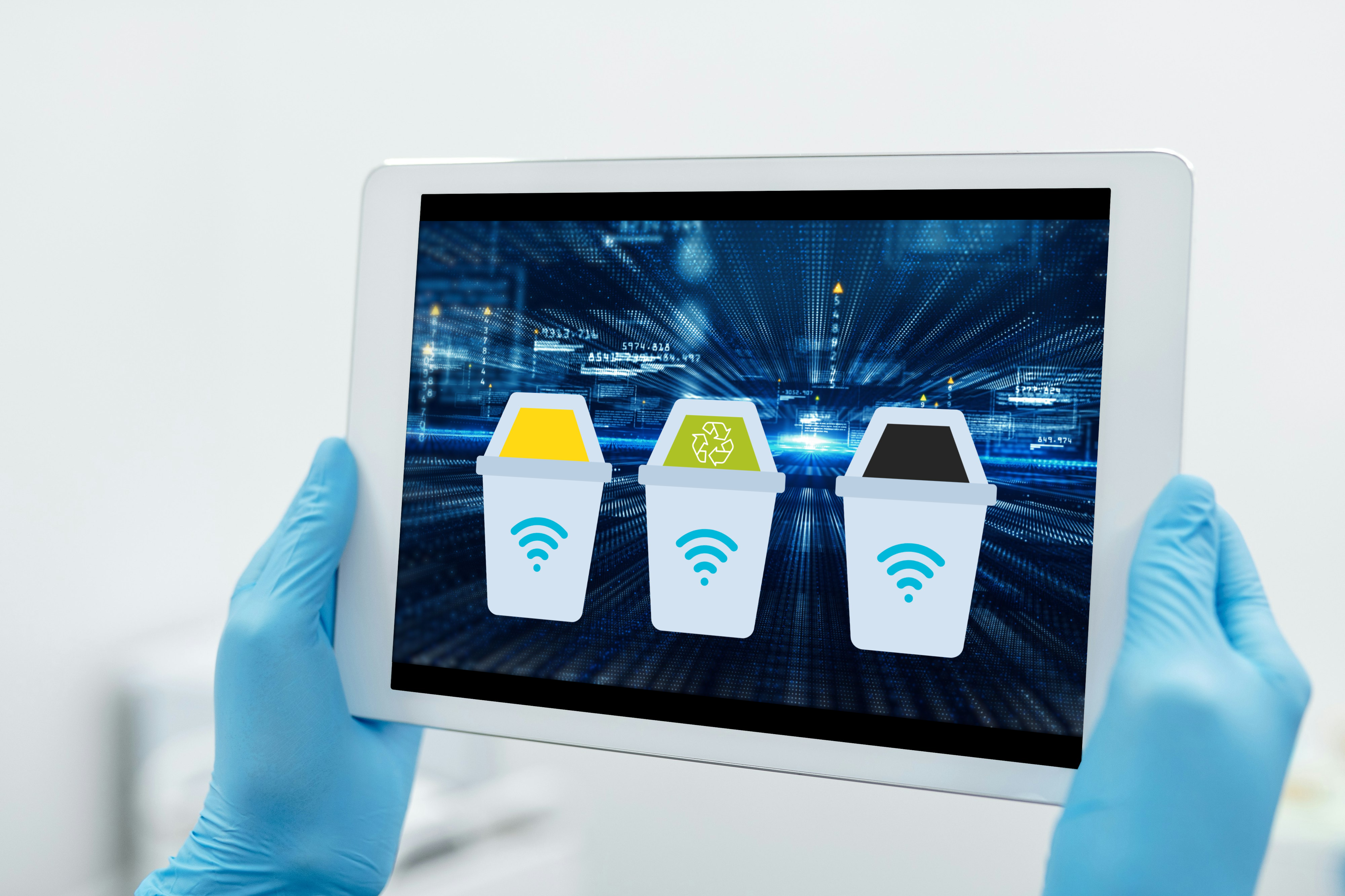
IoT technology has been piloted with positive results in some European hospitals to streamline waste collection processes, and robotic systems have been adopted in some advanced European healthcare systems for sorting and classifying medical waste.
You can learn more about this in the online course, which will be available soon on the Lecturio platform.
Thank you for reading our newsletter! Stay tuned for more updates about our project, and be the first to know when our courses become available. If you found this information valuable, please recommend our project to your colleagues and friends in the healthcare industry.
Thank you for staying with us,
Best wishes from the communications team:

Szilvia Farkas

Albert Aszalos

Szilvia Farkas

Albert Aszalos
Subscribe to our newsletter to stay informed about course development and availability

Funded by the European Union. Views and opinions expressed are however those of the author(s) only and do not necessarily reflect those of the European Union or the Health and Digital Executive Agency (HaDEA). Neither the European Union nor the granting authority can be held responsible for them.

